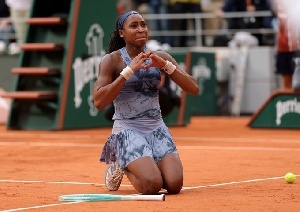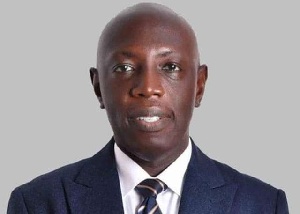Music of Thursday, 22 May 2025
Source: www.ghanawebbers.com
Streams, schemes, royalties: The real cost of a hit song in Ghana
Ghana’s music scene is booming. A new generation of talented artists is gaining global attention. They are riding the waves of Afrobeats and highlife.
From TikTok trends to Grammy nominations, Ghanaian music is thriving. Viral hits, sold-out shows, and international collaborations are becoming common.
However, behind the glitz lies a tough reality. Every hit song comes from hard work and hustle. The music industry in Ghana is complex and challenging.
Artists manage not just their music but also contracts and finances. Streaming numbers don’t always equal income. Where there’s a hit, there’s often a struggle for fair pay.
Ghana's music industry has grown significantly over the years. From E.T. Mensah to stars like Sarkodie and Shatta Wale, the sound has gone global. By 2020, the industry was valued at $150 million with a projected 10% annual growth.
But creating a hit song involves hidden costs.
The Hidden Costs of Making Music
Producing a hit in Ghana requires more than talent; it needs investment. Working with top producers can cost between GH₵ 2,000 to $10,000 for beats alone.
Studio time can be expensive too—up to GH₵ 2,000 an hour at elite studios. Multiple sessions can quickly drain your budget.
Music Video Production: Bringing Hits to Life
Music videos add flair but come with high costs. Producing an A-list video can start at $10,000 and go up to $100,000 for high-end productions.
Marketing: Getting Noticed
Once you have your track ready, promotion is key. Expect to spend GH₵ 50,000 for basic marketing or up to GH₵ 500,000 for extensive campaigns.
Streaming Earnings: A Tough Reality
Despite streaming platforms' popularity, earnings are low for artists. On Spotify or Apple Music, they earn about GH₵ 0.05 per stream.
GHAMRO manages royalties but faces issues like delays and transparency problems. Since 2017, they've paid out about GH₵ 11 million to over 4,500 beneficiaries—averaging only GH₵ 355 per year per artist.
Challenges Facing the Industry
Ghana's music scene faces several hurdles:
- Piracy: It costs the industry over GH₵ 10 million annually.
- Infrastructure: There aren’t enough affordable studios or rehearsal spaces.
- Royalties & Revenue: Money flows in but doesn’t reach artists effectively.
Recommendations for Improvement
To enhance Ghanaian music:
1. Invest in more studios and rehearsal spaces.
2. Strengthen copyright laws against piracy.
3. Improve royalty distribution through better management by GHAMRO.
4. Offer training programs on the business side of music for artists.
Looking Ahead: The Future of Ghanaian Music
Despite challenges, Ghana's music industry has great potential ahead. With Afrobeats trending globally and new artists emerging, it could become an international powerhouse if it addresses its business issues effectively.
So next time you enjoy a Ghanaian song, remember the hard work behind it—the real cost goes beyond money; it includes courage and dedication too.











